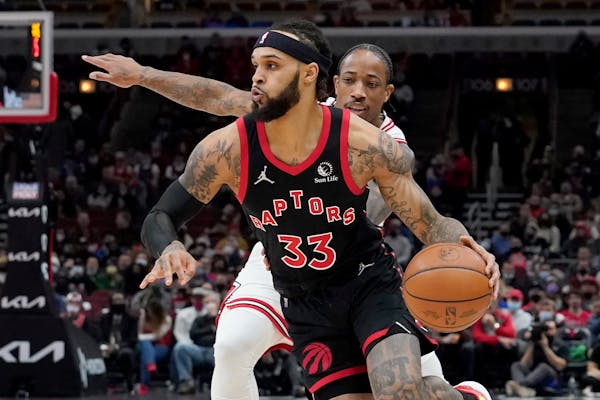Bill Fitch, the former Gophers men's basketball coach who went on to a successful career in the NBA, died Wednesday at 89.
He coached the third-most games in NBA history and had the 11th-most victories.
Fitch's death was announced by Pacers coach Rick Carlisle, who started his professional coaching career under Fitch. Carlisle had been in contact with Fitch's daughter, Marcy Ann Coville, and said Fitch died in Lake Conroe, Texas.
Fitch was a product of the Midwest, raised in Iowa he got his coaching start as an assistant at Creighton before becoming the head coach at Coe College, in his hometown of Cedar Rapids, Iowa, in 1958.
He would have stints at North Dakota — where he reached back-to-back Division II Final Fours in 1965 and 1966 and coached fellow future Hall of Famer Phil Jackson — and Bowling Green before coming to the University of Minnesota in 1968.
Fitch took over a Gophers team that finished last in the Big Ten the previous season.
"It's just not in my nature to like to lose," Fitch told the Star Tribune when he was hired. "I took this job because it was a challenge, but also because it could turn out to be a helluva job after we get the program going."
It was that attitude — that he could take over a moribund basketball team and turn it around — that would illuminate his entire career, from the college ranks to an NBA title with the Boston Celtics in 1981.
The Gophers — who finished 7-17 overall and 4-10 in the Big Ten the previous season — went 12-12 and 6-8 in conference play in Fitch's first campaign. They would improve to 13-11 and 7-7 the next year before Fitch left for the NBA to become the head coach of the Cleveland Cavaliers.
The news of his departure came as a shock to players — "No man, it can't be true, I can't believe it," was how Gophers captain Eric Hill put it upon hearing that Fitch was leaving the U — but Fitch had been heavily recruited by the Cavaliers for their inaugural NBA season and the contract eventually became too good to pass up.
"I've been coaching for 20 years and I still don't own my house," he said at the time.
Fitch would never coach in college again. Instead he embarked on a 25-year NBA career with stops in Cleveland, Boston, Houston, New Jersey and Los Angeles, with the Clippers.
He built a reputation on taking over last-place teams and turning them into contenders.
The Cavaliers were in their inaugural season in 1970-1971 when Fitch was named coach and they finished 15-67. By 1975-1976, they were winning the NBA Central Division and reached the conference finals.
Boston had gone 29-53 before Fitch took over in 1979 and two years later they won a championship in Fitch's lone trip to the NBA Finals.
That 1981 Celtics team featured Larry Bird, Cedric Maxwell, Robert Parish and rookie Kevin McHale out of Minnesota.
Boston finished the regular season 62-20 and overcame a 3-1 deficit in the Eastern Conference Finals against Philadelphia before beating Houston in six games in the NBA Finals.
McHale told the Star Tribune after winning the title that Fitch played a key role in helping create a defensive scheme to stop 76ers star Julius Erving to reach the Finals. "I don't know if anybody can stop Erving, but I thought we did a good job in holding him down," McHale said. "Coach Bill Fitch helped me improve my defensive play. In the pros, you have to overcome the picks and the screens. You learn in a hurry."
Every pro team under Fitch made the playoffs at least once, and his 2,050 NBA games coached ranks third all-time behind only Lenny Wilkens and Don Nelson. He was twice named the NBA Coach of the Year. His final coaching record was 944-1,104.
Though he was known to have an abrasive coaching style, he revolutionized the use of recording practices and game film to study opponents and his own team.
He told the Star Tribune when he took the Gophers job that he wasn't for everyone.
"I say what I think," he said. "I probably don't make too many friends that way, but the friends I do make are good ones."
In his coaching philosophy, Fitch said, details and fundamentals were essential to building a team from the ground up.
"The game has got to come to a point where the fundamental things become a habit," he said. "Basketball is a game of condition, both mental and physical."

Live scores of high school football state semifinals at U.S. Bank Stadium

Ex-Minnesota Viking Everson Griffen given 60-day sentence, probation for drunken driving

Podcast: After three straight bad losses, what's wrong with Timberwolves?

